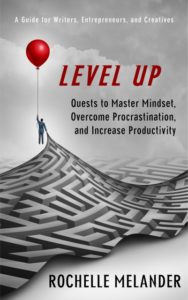Writing is not a matter of time, but a matter of space. If you don’t keep space in your head for writing, you won’t write even if you have the time.
– Katerina Stoykova Klemer
For weeks before the spinning beach ball of death took control of my computer, locking me out from everything, it made several short appearances. My computer repeatedly warned me: “Your startup disk is full. You need to make more space available on your startup disk by deleting files.” I moved files to an external hard drive and deleted unused programs. I might as well have been trying to empty the ocean with a bucket.
In the midst of one late-night moving session, my computer said something like, “I don’t have the space to do this but, if you want to do it, I’ll keep trying.” And so it did. I could not get the computer to stop trying. The guy I called from the manufacturer could not figure out how to make it stop. The tech guy who came over finally halted the crazy spinning by sneaking in the computer’s back door and moving out some of those big files that had trapped the computer in a seemingly endless cycle of pointless activity.
My computer guy let me in on a secret: your computer needs to have 15-20% of its space free to operate. So when it’s stuffed with words, programs, and photos—it gets stuck.
That got me thinking about my writing brain.
I write first thing in the morning, before I’ve checked email, but my brain isn’t just sitting there, waiting to spout out brilliant dialogue. Instead, the thoughts scurry around the hamster wheel in my head: What do I need to sign for the kids? Is my lunch date still on? When do I see clients? I hope I can get the editing done today. What else did I say I’d do? I think I owe my friend a text. I should check Facebook. You know how it goes. I don’t have enough free space in there to focus on reading a book let alone writing one.
According to a recent study by Angelika Dimoka, director of the Center for Neural Decision Making at Temple University, when the prefrontal cortex gets overloaded with information, it shuts down. This part of your brain makes decisions and regulates emotions.
When your brain closes up shop, you’re more likely to make stupid mistakes or bad choices.
You might be thinking, Well, that’s just how it is! No, it’s not.
Here are some signs that your brain might be on overload:
Forgetting deadlines & appointments
Feeling agitated while relaxing (I should be doing something)
Difficulty concentrating on writing or other projects
Trouble focusing on and remembering what you’re reading
Rapidly hopping from idea to task and back again
Feeling exhausted or being unproductive at your most productive times of day
All of us—especially writers—must clear out our overcrowded brain. Don’t let too much bad news or poor writing clog up your brain space. Keep clear of negative voices. Complainers, criticizers, and naysayers all pollute your precious brain.
So what’s the solution?
We can buy a big old external hard drive for our computer and offload some of our information stash onto that. But we cannot buy more brain space. When your brain’s start up disk is full (and whose isn’t full?), don’t wait until you crash—get sick or have a full-blown meltdown.
Instead, take an inspiration sabbatical. Take an afternoon or a day off from work and set out on an adventure!
Here’s how:
Set ground rules
A sabbatical works best if you can take a break from all of the usual noise that clutters your day. On your adventure, vow to let go of any distractions that interrupt your creativity including the television, radio, social media, phone, and email. If possible, try to take the day away from your regular daily responsibilities as well.
Plan an adventure
What sorts of activities nourish you and your creativity? Take a field trip to a place that you find enriching—a bookstore, concert, art museum, or nature center. Do activities that you find inspiring—perhaps dancing, walking, cycling, making art, or attending a concert.
Reflect
At the end of your sabbatical, consider:
What brought you the most inspiration?
What voices are you longing to hear again?
What distractions did you miss?
What toxic or troublesome habits and voices can you let go of?
What voices are you not looking forward to hearing again?
Each time I take an inspiration sabbatical, I get flooded with ideas and return to work with more energy than I thought possible! I wonder why I don’t schedule sabbaticals more often! Now that you’ve had a taste of the sabbatical, why not schedule a few more?
Have you ever taken an inspiration sabbatical? Did it help? Do you wish you could do that? Let’s talk about it on the Career Authors Facebook page.


Rochelle Melander is a speaker, certified professional coach, and the bestselling author of twelve books, including Level Up: Quests to Master Mindset, Overcome Procrastination and Increase Productivity. Through her writing and coaching, Rochelle Melander helps writers, creatives, and entrepreneurs overcome distractions and procrastination, design a writing life, turn their ideas into books, navigate the publishing world, and connect with readers through social media. She is the founder of Dream Keepers, a writing workshop that supports teens in finding their voice and sharing their stories.





